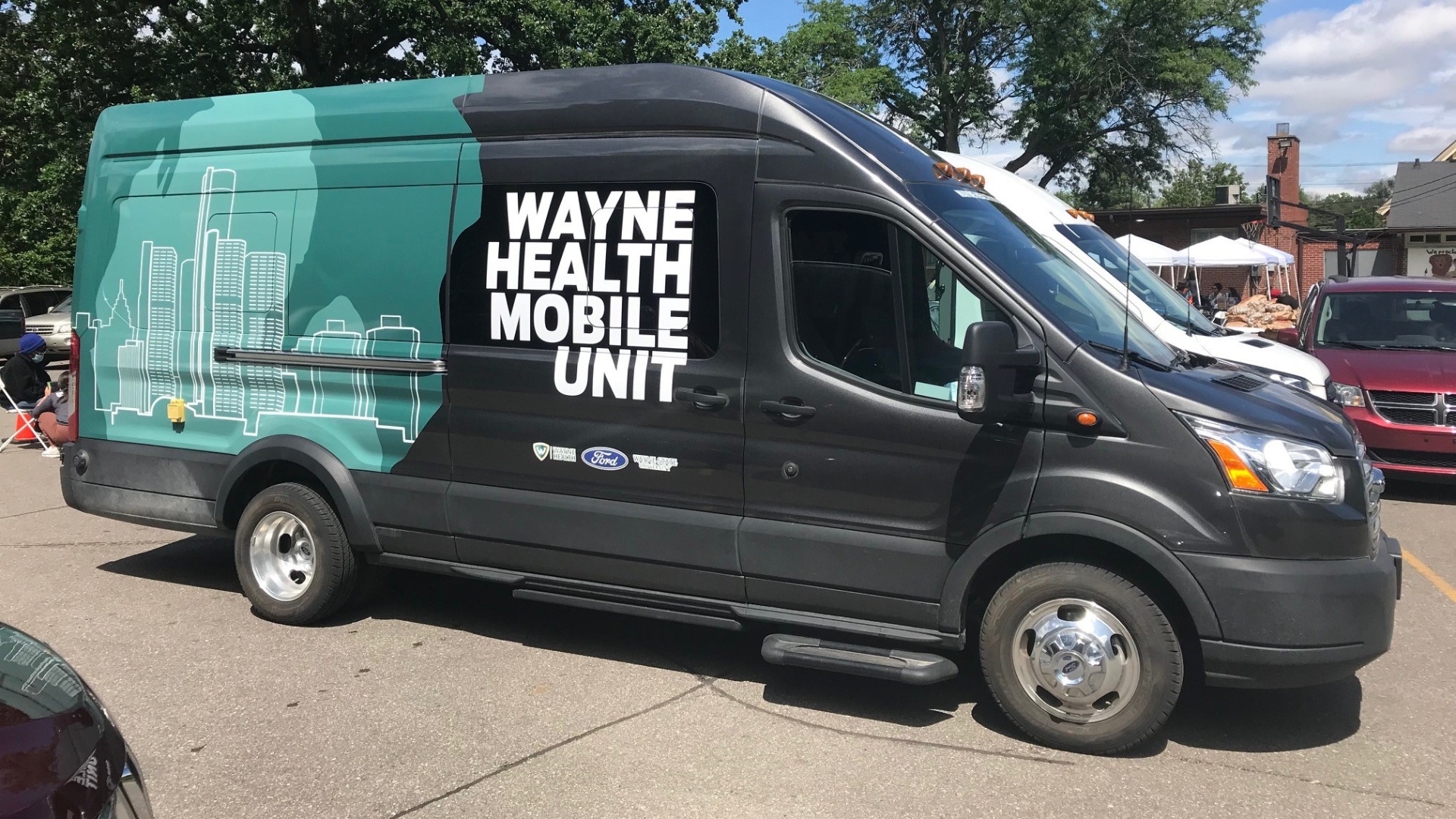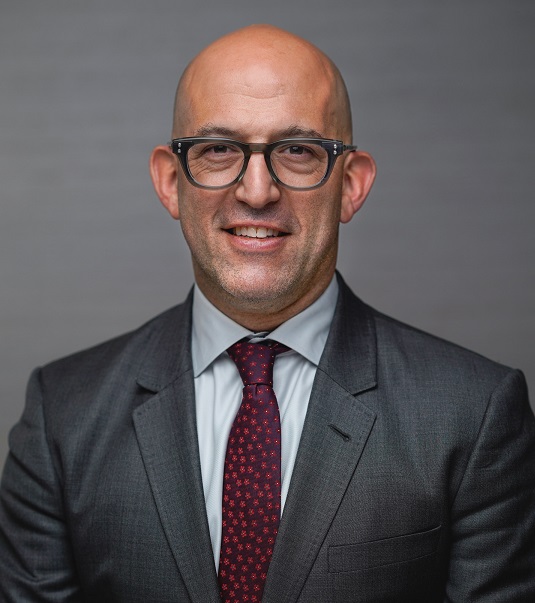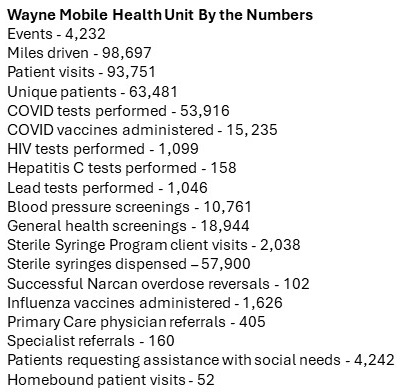
A program that provided mobile testing sites during the height of the COVID-19 pandemic has revolutionized the way Wayne State University provides health care and information services in the city of Detroit and surrounding regions.
Four years ago, when testing sites were rare, the university launched the fledgling program that would grow to become the Wayne Mobile Health Unit to bring desperately needed virus testing to first responders and health care workers to sites throughout Michigan.
In partnership with Wayne Health, WSU established a drive-through testing site for police, firefighters, emergency medical services personnel and health care workers in the parking lots of Wayne Health at 400 Mack Ave. in Detroit and at ACCESSS in Dearborn. The program was led by Phillip Levy, M.D., M.P.H. associate vice president for Translational Science at WSU and director of the WMHU program. Lines of vehicles flooded the site. Dr. Levy later took those services on the road, providing testing – and later, when they became available, vaccines – initially at police headquarters and fire stations across Michigan. The furthest trip was to Houghton, Mich., 573 miles from the unit’s Detroit base.

To enable the program’s launch, Dr. Levy struck up partnerships with a number of organizations that supported the effort, including Ford Motor Co. and Patient Education Genius, United Way for Southeastern Michigan, the Community Foundation of Southeast Michigan/Detroit Medical Center Foundation, the Ralph C. Wilson Foundation, Community Organized Relief Effort, DTE Energy Foundation, Blue Cross Blue Shield of Michigan, the Cielo Foundation, Molina Healthcare of Michigan, the Michigan Department of Health and Human Services, and even film director Stephen Soderbergh, who provided funding for two vans in appreciation for Dr. Levy’s role as health safety supervisor and daily mobile COVID-19 testing services the unit provided that kept his crew and cast safe during the filming of “No Sudden Move” in Detroit in the midst of the pandemic.

Once COVID-19 vaccines became readily available, the program expanded to provide vaccinations, to vulnerable, underserved areas at neighborhood sites at the request of grassroots community organizations, churches and schools.
Since its inception, the Wayne Mobile Health Unit has provided health services and education at 4,232 sites, assisting 93,751 patients. The program will soon surpass 100,000 total miles driven since its launch. Today, the unit consists of six Ford Transit vans and a large recreational vehicle, all equipped to provide health care and testing services. The unit provides services at an average 36 sites a week, with five to seven staff members at each site.
The experience of delivering care in underserved neighborhoods is at the heart of the program’s mission today, which is to bring health care directly to people in areas that lack access to primary care providers, or transportation to physician offices. This is a primary pillar of WSU’s Prosperity Agenda, which seeks to empower health for the urban neighborhoods the university serves.
“Once the pandemic cooled and testing and vaccinations became more readily available, it made inherent sense to continue delivering health care services to where they were really needed,” Dr. Levy said. “This is especially important in underserved areas, where residents may not have access to primary care physicians, nor the transportation to get to a doctor. When data show that the quality of life varies widely from neighborhood to neighborhood, the mobile health unit can take services down to a hyperlocal level.”
Filling those gaps is critical to reducing health care disparities, especially in cardiovascular disease, that have stubbornly persisted in southeast Michigan for decades, and much of that begins with basic, yet vital, patient engagement to improve prevention of complications from high blood pressure, high cholesterol, diabetes and smoking. Armed with additional funding in the form of line-item appropriations in the State of Michigan budget and grant support from the National Institute of Minority Health and Health Disparities as well as the American Heart Association, the program is taking these initiatives to scale, focusing on population-level cardiovascular disease risk reduction by providing place-based, cost-free preventive health care, as well as links to social and medical services for those who have needs identified through protocolized screenings.
“There is much unmet medical need in our city and region, and we embrace every opportunity to partner with our community to meet those needs,” said WSU President Kimberly Andrews Espy, Ph.D. “The Wayne Mobile Health Unit brings health care to the very doorsteps of our neighbors who are most in need, providing the means to reverse longstanding health care disparities that have long affected Detroit area residents. What a national exemplar.”
In addition to an emphasis on cardiovascular disease and other prevention services, the WMHU has also begun to provide women’s health services. In partnership with WSU’s Office of Women’s Health, the program participates in Well Woman Wednesdays, bringing free mobile health screenings and health education to empower women to achieve better outcomes by providing resources and connections to health care providers in urban neighborhoods. With recent funding from the Centene Foundation and Meridian in Michigan, the program is expanding these services to include prenatal care, with a goal of improving maternal-fetal health in neighborhoods that suffer worse outcomes.
If you are interested in partnering with the WMHU to arrange a mobile testing site in your community, submit a request here. You may also email MobileHealthUnit@med.wayne.edu or call 313-448-9850.